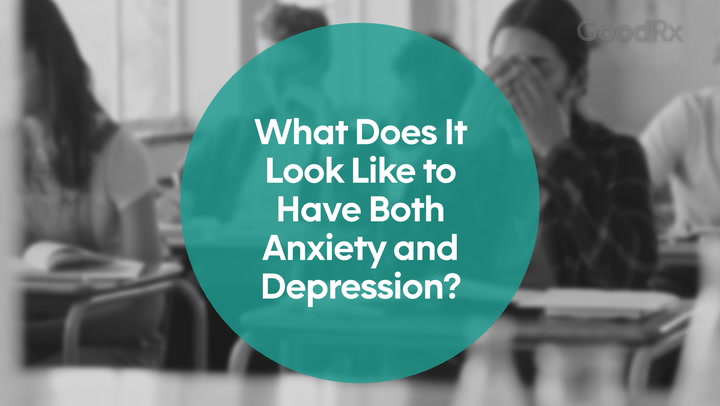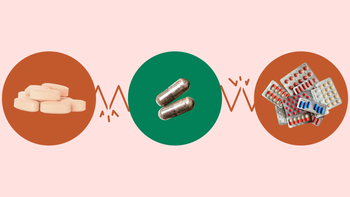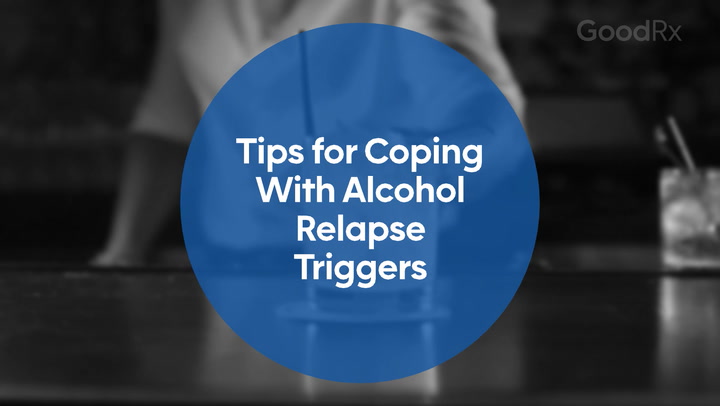
Physical Signs of Grief: How Loss Can Affect Your Body, Too
Key takeaways:
Physical symptoms of grief can mimic the fight-or-flight response and may include shortness of breath, dizziness, tightness in the chest, and nausea.
People who experience a loss are at higher risk of certain physical health conditions, such as heart attack and stroke.
Grief can also cause takotsubo cardiomyopathy, or broken heart syndrome, which presents like a heart attack despite the arteries being clear.
Table of contents

Grief is a reaction to any form of loss, such as the death of a loved one, the loss of a job, or the end of a significant relationship. Grief can cause many difficult emotions like sadness, hopelessness, and helplessness.
In the last few decades, researchers have been looking at the connection between the mind and body. They’ve discovered that your emotions have a direct impact on your physical health and well-being. Therefore, it’s not surprising that grief can cause physical symptoms, too.
So, how exactly does grief affect the body? Keep reading to learn more about the physical symptoms of grief and how to manage them.
Search and compare options
Physical symptoms of grief
Grief can cause a range of physical, emotional, and behavioral symptoms. Grief is also a highly individualized experience, so two people experiencing grief may have very different symptoms.
Physical symptoms of grief can include:
Tightness in the chest or throat
Shortness of breath
Headache
Dizziness
Nausea
Upset stomach
Fatigue
People of all ages can experience physical symptoms of grief. Children as young as 2 years old may display changes in sleep and appetite and regression in their behaviors, such as with bedwetting.
How does grief affect your body?
Grief is a form of stress, and stress has a direct effect on your body. Experiencing the loss of a loved one triggers the release of the stress hormone cortisol. This is why some people initially experience the fight-or-flight response following the news of a loss. Symptoms can include a racing heart, faster breathing, and sweating.
The fight-or-flight response usually subsides with time, but some people may continue to experience it when they hear the name of the person they lost or are otherwise reminded of their loss. Studies have found that in some situations cortisol levels may remain elevated for weeks, months, or even years following a loss.
Read more like this
Explore these related articles, suggested for readers like you.
Grief can affect the body in many ways, and everyone reacts to it differently. However, the experience of grief and elevated cortisol levels are linked to a higher risk of:
Cardiac arrest
Heart attack
Stroke
Blood clots
The experience of grief and increased cortisol levels can also lower immune system functioning. This can leave you more susceptible to illnesses and infections.
Can grief make you sick?
It is true that grief can actually make you sick. Takotsubo cardiomyopathy is a condition caused by severe stress, which can be triggered by the loss of a loved one. It’s also sometimes referred to as broken heart syndrome.
Symptoms of takotsubo cardiomyopathy include:
Chest pain
Shortness of breath
Fatigue
Cold sweats
Lightheadedness
These symptoms are similar to those of a heart attack, and an EKG may even display abnormalities similar to what people experience with a heart attack. However, with takotsubo cardiomyopathy, your coronary arteries are clear, which is not the case with a heart attack.
Treatment for takotsubo cardiomyopathy includes certain medications and therapy. People with takotsubo cardiomyopathy usually see their symptoms improve within 2 months. However, a small number of people may experience complications as a result of the condition. So it’s important to seek medical treatment if you experience symptoms of takotsubo cardiomyopathy.
How to get through grief
There is no quick fix for grief. While there are things that you can do to help yourself cope with grief, getting better also requires time and patience. As you embark on your grief journey, the following strategies may help.
Allow yourself to feel
Grief can bring about many feelings that are difficult and even painful. You may find yourself feeling sad, angry, worried, and afraid, for example. Because these feelings are difficult, some people want to avoid them or turn to drugs or alcohol to self-medicate.
It’s important that you allow yourself to feel your emotions and make space for them. It may seem counterintuitive, but when you give yourself time to feel without judging yourself, you often feel better.
Honor your loved one or loss
For many people who have lost a loved one or experienced another type of loss, finding ways to honor the memory of the person or thing they’re grieving is helpful. People often worry that their loved one will eventually be forgotten, but finding ways to remember them or celebrate their life helps to keep their memory alive.
There are many ways to honor a loved one. It’s important that you find a way that feels right to you. Grief is deeply personal, so what works for one person may not work for another.
Some ways to honor a deceased loved one or pet are:
Donate your time or money to a cause close to your heart.
Host a memorial gathering or celebration of life.
Do an act of kindness on their behalf.
Start a charitable organization in their honor.
Become involved in advocacy work.
Connect with other people
Social support is an important part of coping with grief. Connecting with people who are understanding and compassionate can help you navigate this difficult period of time.
If you don’t have a strong support system in place, consider joining a grief support group. There are many support groups available for people who have experienced a loss, which we’ll discuss more below.
Self-care
Self-care is also an important part of managing grief. When you’re going through a hard time, it’s common to not take care of yourself. But this is the time when you need to the most.
As you navigate grief, be sure to:
Eat healthy meals.
Drink enough water.
Aim for at least 7-8 hours of sleep a night.
Exercise or move your body in some way every day.
When to seek help for grief
Grief is an incredibly difficult and isolating experience that you don’t have to face alone. You can find help in one-on-one therapy or support groups.
Signs that you should seek help for grief include:
Sadness and anxiety that feels intense and persists
Physical symptoms like the ones covered above
Difficulty fulfilling roles at home, work, or school
An inability to talk about your loss
Difficulty going through a lost loved one’s possessions
Self-medicating with drugs or alcohol
Anger that is hard to manage
There is no “right” or “wrong” time to seek help for grief. If you’re having a hard time, meeting with a therapist or joining a support group can help you process your loss and feel less alone.
Grief support groups and other resources
For more information on how to cope with grief, see the following resources:
National Institutes of Health on coping with grief
Substance Abuse and Mental Health Services Administration (SAMHSA) tips for survivors
U.S. Department of Veterans Affairs on coping with grief
Grief support groups are also available in person and online. Typically, support groups are focused on a specific type of loss, so members can feel comfortable sharing about their common experiences. To locate a support group, see the following organizations:
GriefShare, which offers faith-based support for anyone experiencing the loss of a loved one
Postpartum Support International (PSI), online support groups for parents who have experienced a pregnancy or infant loss
Compassionate Friends, which offers support for anyone who has experienced the loss of a child of any age
Tragedy Assistance Program for Survivors (TAPS), which offers support for individuals grieving the death of a military or veteran loved one
American Foundation for Suicide Prevention, support groups for anyone who has lost a loved one to suicide
National Widowers Organization, support groups for men who have lost a spouse
W Connection, an online community and support group network for women who have lost a spouse
Lap of Love, support groups and resources for those who have lost a pet
The bottom line
Grief can be a profound experience. Often, it causes the body to react in the same way that it would to extreme stress. Not only can grief bring up many emotions, like anger and sadness, it can also cause physical symptoms like headaches, dizziness, and even chest pain.
If you experience physical symptoms related to grief, talk to your primary care provider to rule out any medical issues. Many people also find it helpful to connect with a therapist or attend a support group to help cope with loss. Though there’s no right or wrong way to heal from grief, honoring your loss — while also caring for your health — can help you get through this difficult time.
Why trust our experts?



References
Ahmad, S. A., et al. (2023). Takotsubo cardiomyopathy. StatPearls.
American Psychological Association. (2020). Grief: Coping with the loss of your loved one.
Buckley, T., et al. (2012). Physiological correlates of bereavement and the impact of bereavement interventions. Dialogues in Clinical Neuroscience.
Centers for Disease Control and Prevention. (2023). Grief.
Child Mind Institute. (2023). Guide: Helping children cope with grief.
Hopf, D., et al. (2020). Neuroendocrine mechanisms of grief and bereavement: A systematic review and implications for future interventions. Journal of Neuroendocrinology.
Hospice Foundation of America. (2012). When do I seek professional help?
Logan, E. L., et al. (2018). Social support following bereavement: The role of beliefs, expectations, and support intentions. Death Studies.
Luchterhand, C. (2024). Coping with grief. U.S.. Department of Veterans Affairs.
Merschel, M. (2021). How grief rewires the brain and can affect health – and what to do about it. American Heart Association News.
Mughal, S., et al. (2023). Grief reaction and prolonged grief disorder. StatPearls.
Renoir, T., et al. (2013). Mind and body: How the health of the body impacts on neuropsychiatry. Frontiers in Pharmacology.
Solan, M. (2023). How to deal with grief. Harvard Health Publishing.
Substance Abuse and Mental Health Services Administration. (2017). Tips for survivors: Coping with grief after a disaster or traumatic event.
Wein, H. (2017). Coping with grief. NIH News in Health.
For additional resources or to connect with mental health services in your area, call SAMHSA’s National Helpline at 1-800-662-4357. For immediate assistance, call the National Suicide Prevention Lifeline at 988, or text HOME to 741-741 to reach the Crisis Text Line.





























